Volume 2, Issue 72: Via Chicago
Growing up, Chicago was the enemy. In downstate Illinois, everything that's wrong with your life can be blamed on Chicago. Taxes are too high, wages are too low, schools are too ratty, world is going to hell in a handbasket: That's because of those Chicago Pricks. That was the exact terminology: Chicago Pricks. This is not an uncommon dichotomy in geographically vast states with one major metropolis that dominates the political landscape; ask someone in Syracuse how they feel about New York City. I have always joked that Illinois is basically Nebraska with Chicago at the top. Chicago was where all the politicians were corrupt, where everyone was always shooting each other, where they looked down on us, called us Cow Towns and Hill People. We hated the Chicago Pricks.
It seems sort incredibly stupid now, but when I think back about when I was about to graduate from high school and head to the University of Illinois, the thing I was most nervous about was what all the people from Chicago were going to think of a Mattoon boy with feathered hair and a tendency to put the letter "R" in the word "wash." I was scared of them. I thought they were going to make fun of me. It turned out, of course, that not only were Chicago Pricks not pricks, most of the people I met weren't from Chicago at all; they were from suburbs like Naperville and Homewood and Downers Grove, and they just said they were from Chicago because it was easier and made them look cooler. There were normal dumb kids. They were just like us Hill People.
And through them, I learned that I loved Chicago. Chicago is just a great American city, I'd argue maybe the best one. It is massive without being overwhelming, historic without being stuck in the past, overwhelming but intimate, sprawling but easily navigated, spectacular but also humble and no-nonsense. It's geographically fascinating -- even its below-ground streets are visually stimulating; the semi-truck scene in The Dark Knight makes Lower Wacker look like a whole city unto itself -- and it has the most breathtaking skyline of all the breathtaking skylines.
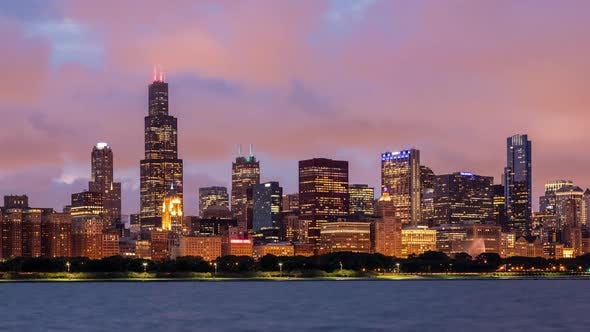
There was always seemed to be a bit of a Chicago shuttle for my friends from college. They went to high school in the Chicago suburbs, headed to Champaign for college, moved to the city (usually around Wrigleyville, or Lincoln Park if they were posh), met someone drinking after a Cubs game, married them a few years later, moved back out to their original suburb when they had kids and then shipped that kid down to Champaign 18 years later to repeat the whole process. This shuttle, my worry of ever getting stuck anywhere, was one of the reasons I never actually lived in Chicago myself. I wanted to try the dream of Los Angeles, the chaos of New York. Chicago was an incredible place. But it never felt like home, or like a destination. It was a place I always wanted to go but never wanted to stay.
What really made me fall in love with Chicago was its newspapers. There was such a rich culture to the newspapers in Chicago, with the grand Tribune building right across from the more blue-collar, regular-guy Sun-Times. I didn't know much about Chicago, but reading their newspapers sure made me feel like I did. Because I adored Roger Ebert so much, I was always a Sun-Times guy, but it was the romance of those two big-shouldered newspapers battling it out right there in downtown Chicago, a million stories in the naked city, that was irresistible. And in Chicago, the writers were the stars: Ebert, Mike Royko, Irv Kupcinet, Lois Wille. They'd go out and pound the pavement for stories all day, crouch over typewriters while chewing on cigars at night and then head over to the old Billy Goat Tavern, perfectly located underground right between the two great papers, and drink until dawn before rising to do it all again. At the University of Illinois, these papers and these journalists were treated with reverence bordering on hagiography. This was the path you were supposed to take as a young reporter. Intern at one the papers in college, enter the workforce at a suburban paper (or even the Daily Southtown, where I wrote movie reviews as a junior) once you graduated, work your way up the ladder, and if you were the best of the best, you could maybe make it to the Trib by the time you were 40. Then you'd made it. There was nothing higher. This wasn't exactly how I wanted my career to go. But the romance of it was undeniable.
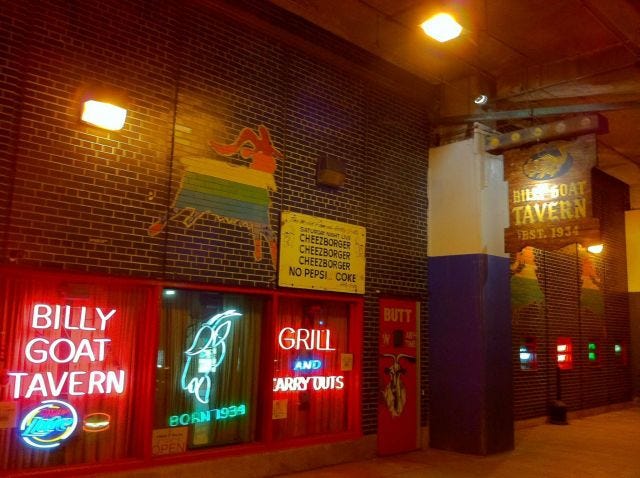
Everything changed, of course. We graduated into that workforce only to have it collapse right out from underneath us. Most journalists who followed that path, 10 years in, looked around and realized everyone older than them had been laid off and none of their jobs were being replaced. The Sun-Times is now in large part a content farm; the Tribune is now just lucky not to be part of Sinclair. There are good people working at both places, doing good work. But it is not the same. It never will be. The city feels somehow lesser because of it.
Or maybe that's just in my memory. Maybe that Chicago never really existed in the first place.
This week, I was in Chicago to write about a golf tournament, a sentence that is bizarre for me to even type. I don't have a lot of friends in Chicago anymore, sad to say, and I spent most of my time wandering around downtown, listening to music and taking it all in. I was supposed to go to a baseball game on Tuesday night, but it got rained out, so I decided to head to the old Billy Goat. We used to come into town for journalism conventions in college, and we always ended up at the Billy Goat. Our journalism school still does its regular alumni meetings there. It was Ebert's old haunt. When you are lonely and walking around a big city you love, you want to be among memories.
The place was mostly tourists, which made sense: It was still early in the evening, and it is the Cheezborger Cheezborger Cheezborger No Pepsi Coke place of John Belushi's old SNL sketch. (Belushi's most underappreciated movie role will always be Continental Divide, by the way, where he played a Royko-esque newspaper reporter.) But I saddled up to the bar anyway, ordered a whiskey, tried to pretend like I belonged, that I wasn't pretending, that I didn't have an "R" in "wash." I looked on the walls, with all the old newspaper clippings, the famous Byline Wall, the names of those old grizzled dead writers still haunting the place.
After a couple whiskeys, I ended up talking to the guy next to me, because that's what you're supposed to do in a newspaper bar. And as it turned out: It was a newspaper man, Rick Pearson, the man who has been the Tribune's chief political reporter for 20 years. I'd never met him, but I knew his work, and as it turned out, he knew mine, so we sat and drank and talked about the old days, about Springfield politics, about Rod Blagojevich, about the few colleagues we both knew who were thriving, about the vast majority of others who had gotten out of the business entirely. This was the real deal, a Trib reporter of two decades, at the Billy Goat, talking shop. Rick took me in the back room to show me the special stuff, the collection of press passes they have mounted on the wall, the photos and paintings of all the old greats. This was all I could have wanted.
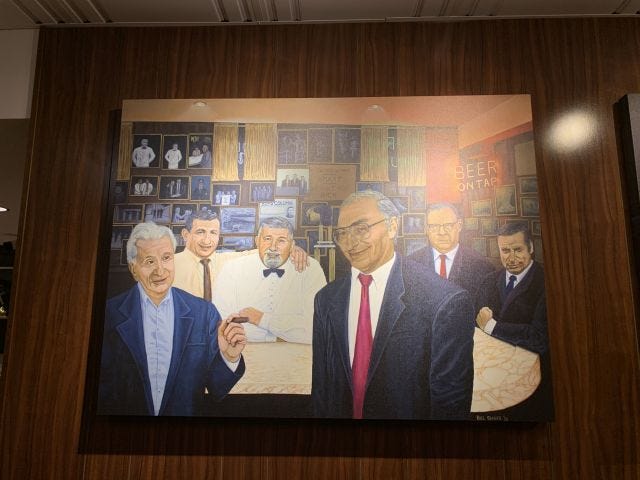
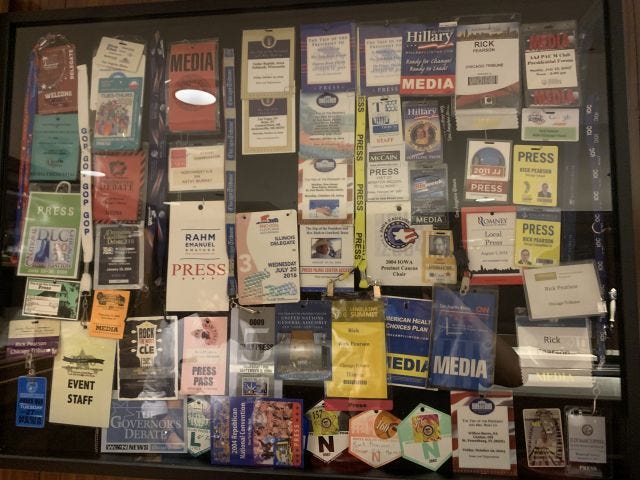
As we walked back to the bar, Rick stopped to talk to a group of people who seemed to be having some sort of meeting. When he returned, I asked him who that was. He said, with a slight growl, "Union meeting."
It was, in fact, a formal meeting of the Chicago Tribune Guild, getting together, like many other groups of young media people, to commiserate and strategize how best to protect their interests and their jobs against yet another corporation that could care less about their well-being. These were not a bunch of dreamers in awe of the old white men on the walls. They were young and diverse and hungry, good-hearted but determined people, making sure they fought together for the rights and powers they deserve. They were not drinking whiskey. They were not reminiscing about the old days. They were not sitting at the bar lamenting what has been lost. They were in the fight.
Rick was a great conversation. We could have gone on all night. But I found myself slightly ashamed nonetheless. Nostalgia and hazy lament gets us nowhere; they are indulgences, privileges. Those kids in the union, they're the ones who are making the future of journalism is secure. They're the ones looking forward, not backwards. I went to the Billy Goat to remember what once was. But the only thing matters is what happens next.
I drank two more whiskeys, bid Rick goodbye and stumbled out into the Chicago night. I was alone, but I was warm. Chicago felt a little more like home than it ever had before. It all felt like it might end up OK. I think Ebert would have been proud of those Chicago Pricks.
Just to be clear, though: Screw the Cubs.
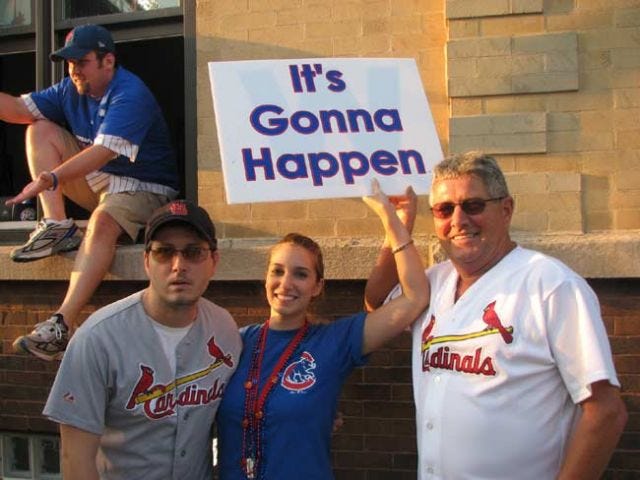
Here is a numerical breakdown of all the things I wrote this week, in order of what I believe to be their quality. You may disagree. It is your wont.
1. Dabo Swinney, The Avatar of College Football's Sins, New York. This piece obviously got around a bit, but I'll say it was odd to see it sent around by fans of Clemson's rivals, as if it was meant to somehow take down that specific program. Swinney is indicative of college football's ethical failings, not the exclusive owner of them, and if you think your team's college football coach is all that different, you're kidding yourself. The major difference is only that Swinney's better at it than yours is.
2. MLB Playoff Urgency Index, MLB.com. The Cardinals should be No. 1 on this list, but aren't.
3. Look How Awesome These Old Pitchers Are, MLB.com. Well, "old."
4. Debate Club: Sharks!, SYFY Wire. Sharks!
5. The Thirty: Position Players You'd Like to See Pitch, MLB.com. Not sure I got any of these right, frankly.
THE WILL LEITCH SHOW
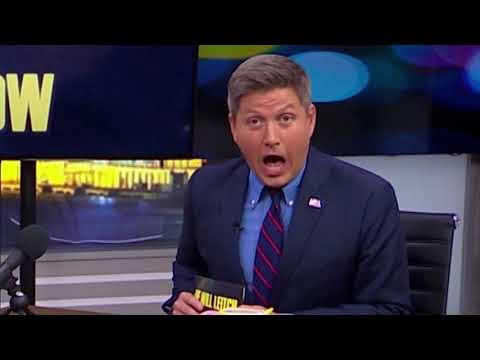
Season Three starts up soon. So catch up on all the ones you've missed on Amazon or on SI TV.
PODCASTS
Grierson & Leitch, "The Kitchen," "Scary Stories to Tell in the Dark," "Beyond the Black Rainbow"
Seeing Red, no show this week, back Monday.
Waitin' Since Last Saturday, our big SEC preview. Weekly shows have begun!
GET THIS LUNATIC OUT OF HERE 2020 PRESIDENTIAL POWER RANKINGS
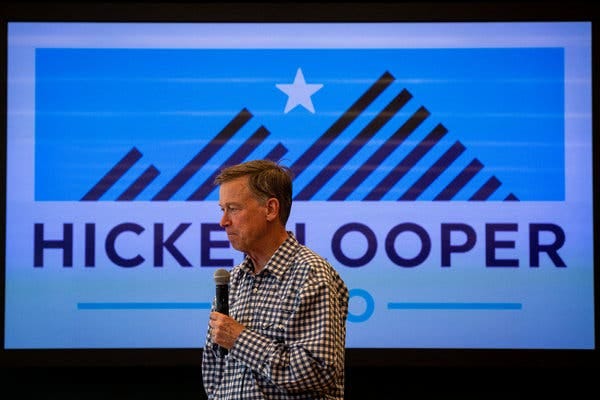
Goodbye, John Hickenlooper. I thought you were going to be a lot more interesting than you were. Go win that Senate seat!
1. Kamala Harris
2. Elizabeth Warren
3. Beto O'Rourke
4. Cory Booker
5. Joe Biden
6. Amy Klobuchar
7. Jay Inslee
8. Pete Buttigieg
9. Kirsten Gillibrand
10. Steve Bullock
11. Julian Castro
12. Michael Bennet
13. Bernie Sanders
14. Seth Moulton
15. Tim Ryan
16. Tulsi Gabbard
17. Tom Steyer
18. William Weld
19. Marianne Williamson
20. Bill de Blasio
21. Andrew Yang
22. John Delaney
23. Wayne Messam
ONGOING LETTER-WRITING PROJECT!
Mailbox getting light! Get on it. Bring 'em on at:
Will Leitch
P.O. Box 48
Athens GA 30603
CURRENTLY LISTENING TO
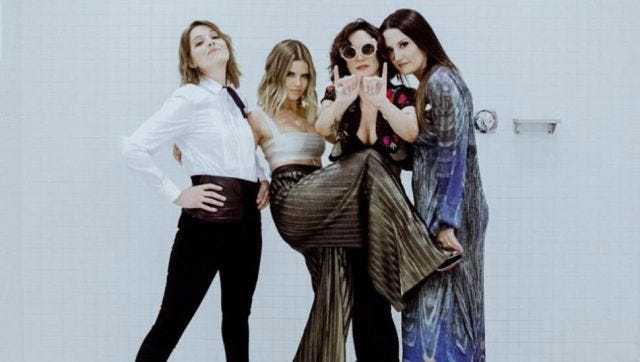
"The Chain," The Highwomen. This song isn't even on their new album -- it's part of the soundtrack for "The Kitchen," if you can believe that, but you can never, ever go wrong covering Fleetwood Mac.
Here is where I am right now.
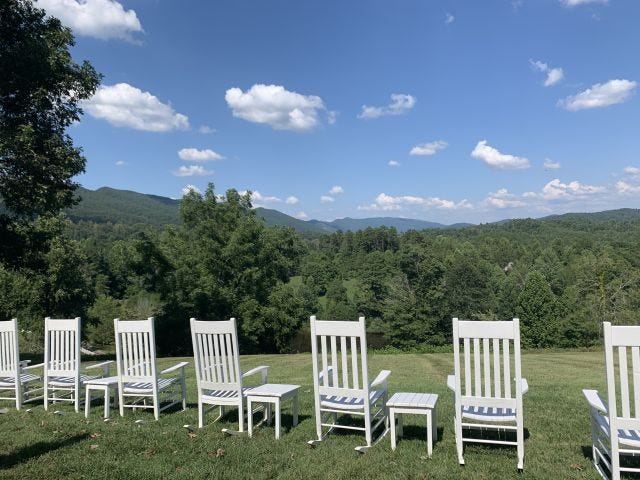
Have a great weekend, all.
Best,
Will

